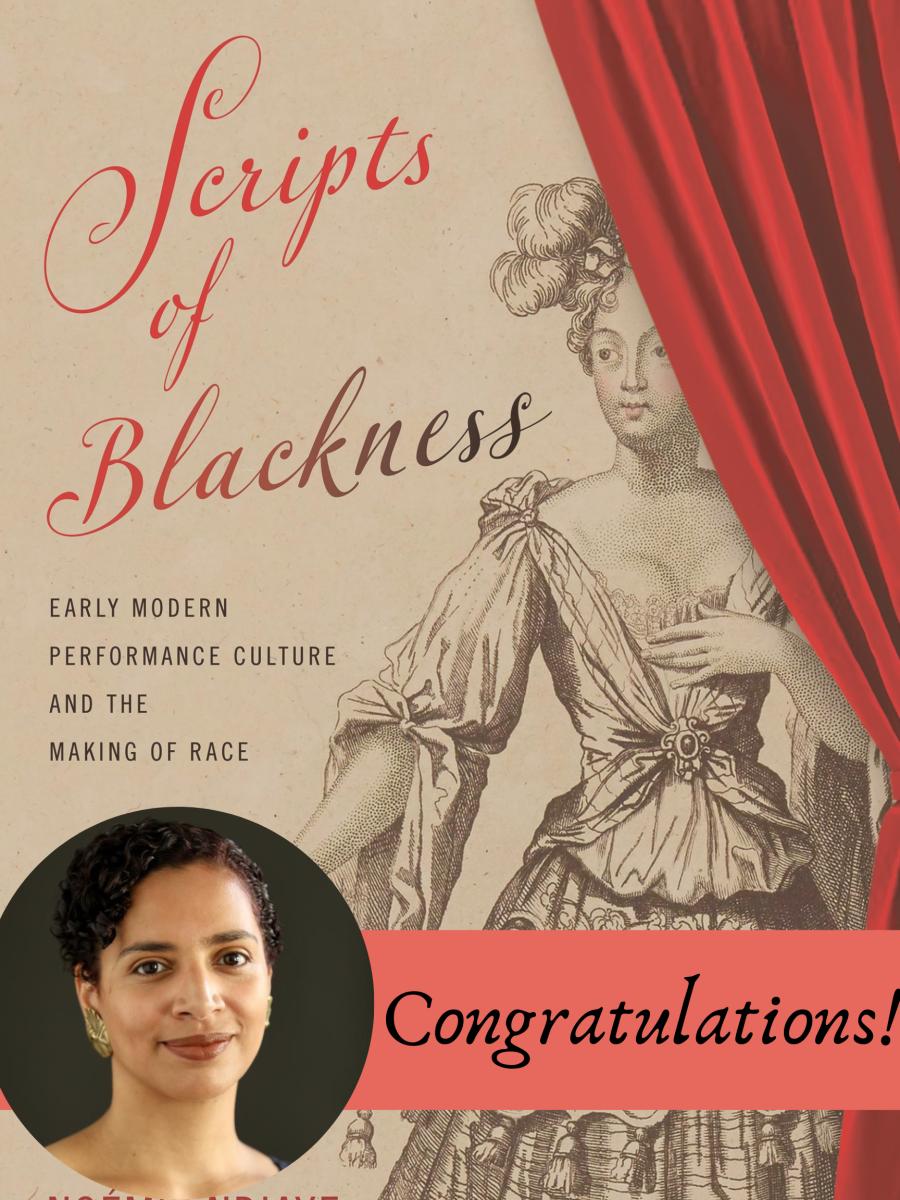Ndiaye’s book Scripts of Blackness: Early Modern Performance Culture and the Making of Race (2022) examines how early modern theater and performance culture helped turn Blackness into a racial category and how that cultural decision still resonates today.
Performing Blackness
Ndiaye begins Scripts of Blackness with vignettes from her own experience. While attending an acting school in France, Ndiaye realized her racial identity rubbed against the theatrical cannon and limited her ability to act in plays. It motivated her to understand how those assumptions started and why they continue today.
“I am interested in a large-scale exploration of the racial matrix in performance culture,” said Ndiaye, associate professor in the Departments of English Language and Literature and Romance Languages and Literatures and the College at UChicago. “Even in Shakespearean plays such as ’Richard III,’ the king compares himself to a Turk. I ask my students: ‘What does racial difference do for Richard III?’ Performative Blackness created the figure of the other for early modern Europeans.”
Ndiaye realized through her research that racial stereotyping was not the same in mid-1600s Spain, France and England. At the time, Spain had full-fledged slavery, which was not true in England or France. Other European countries, however, looked to Spain to tell the stories of Black people that supported and reinforced their political and social beliefs.
Read more via UChicago Humanities

